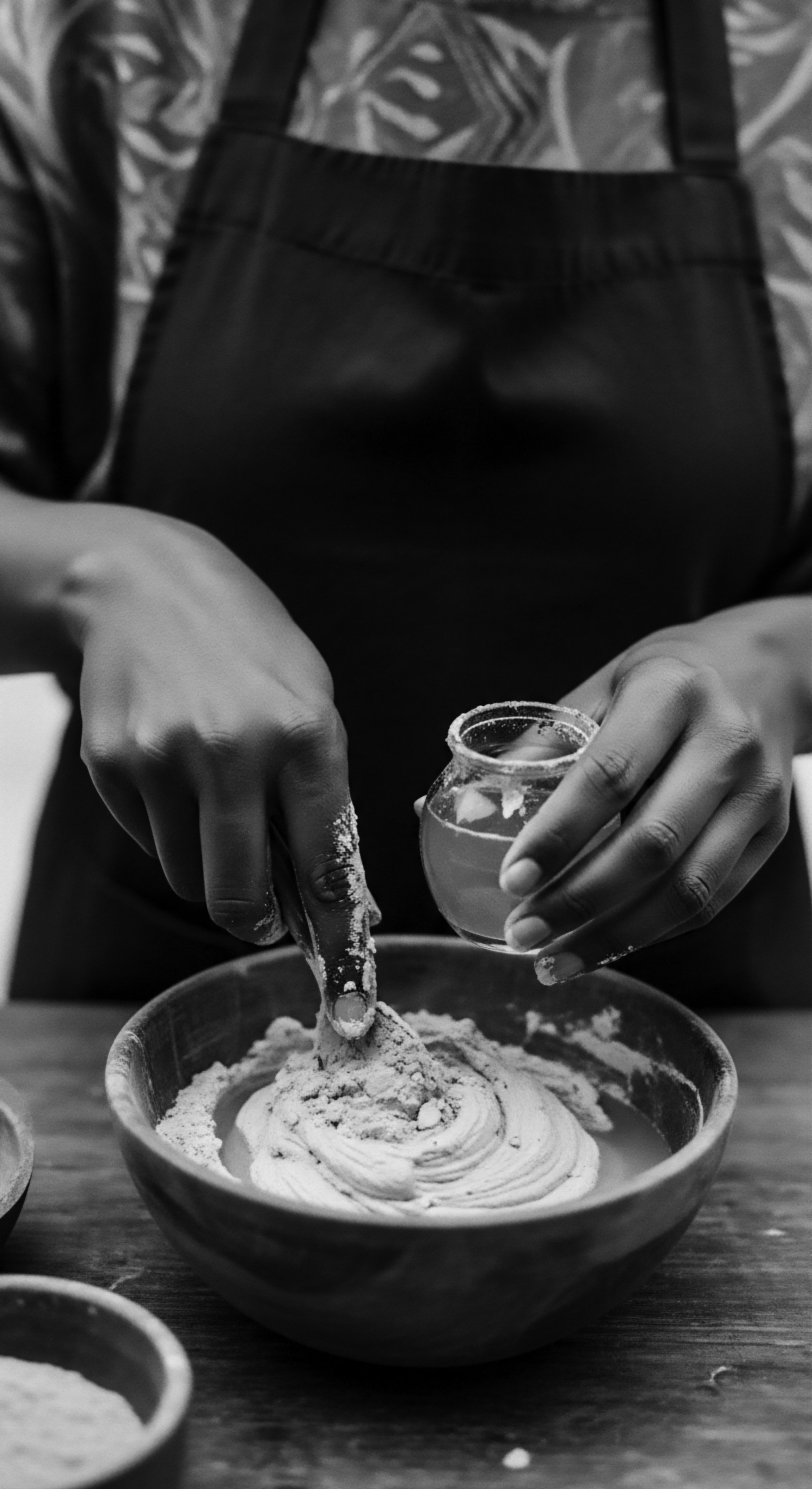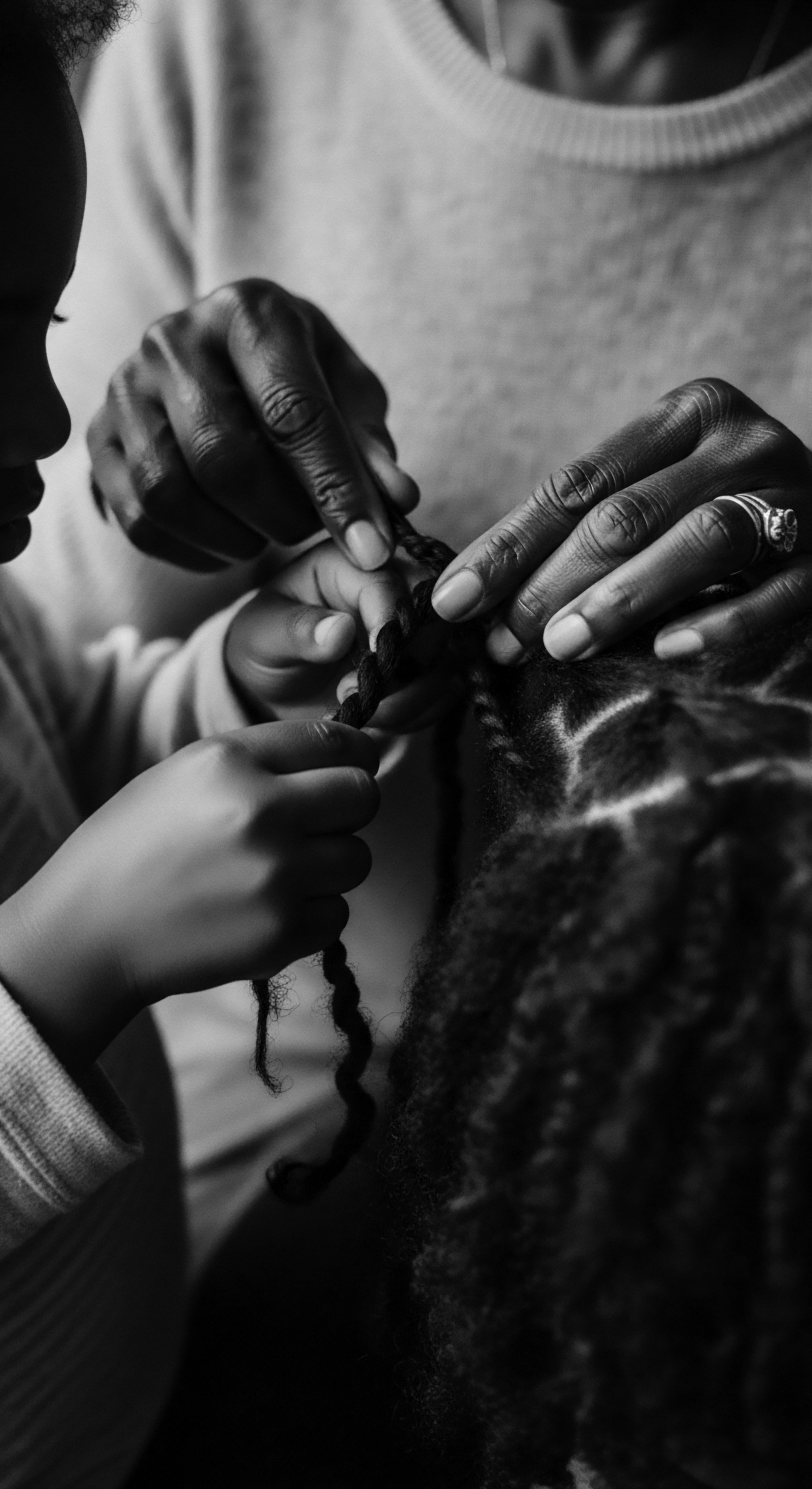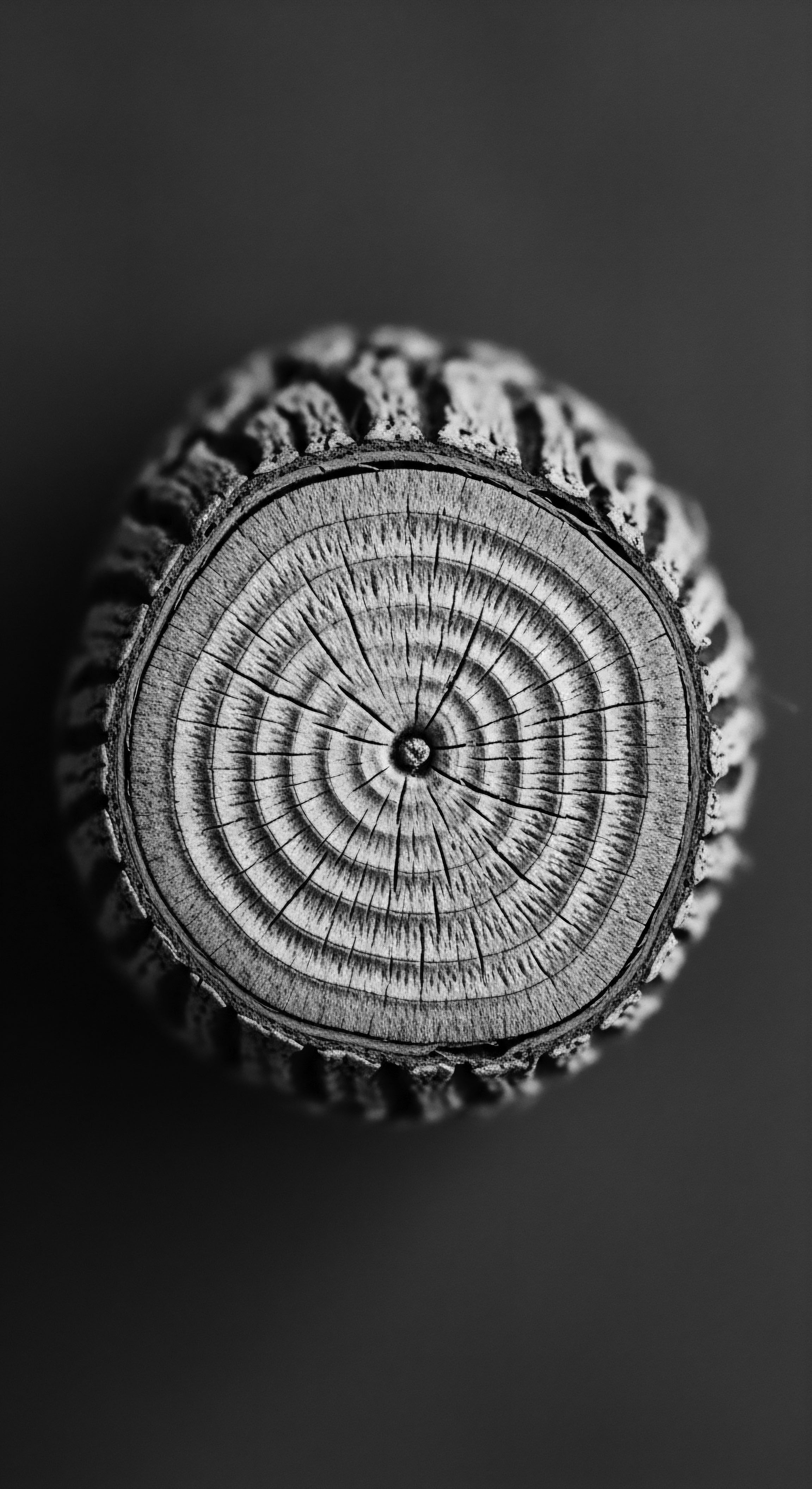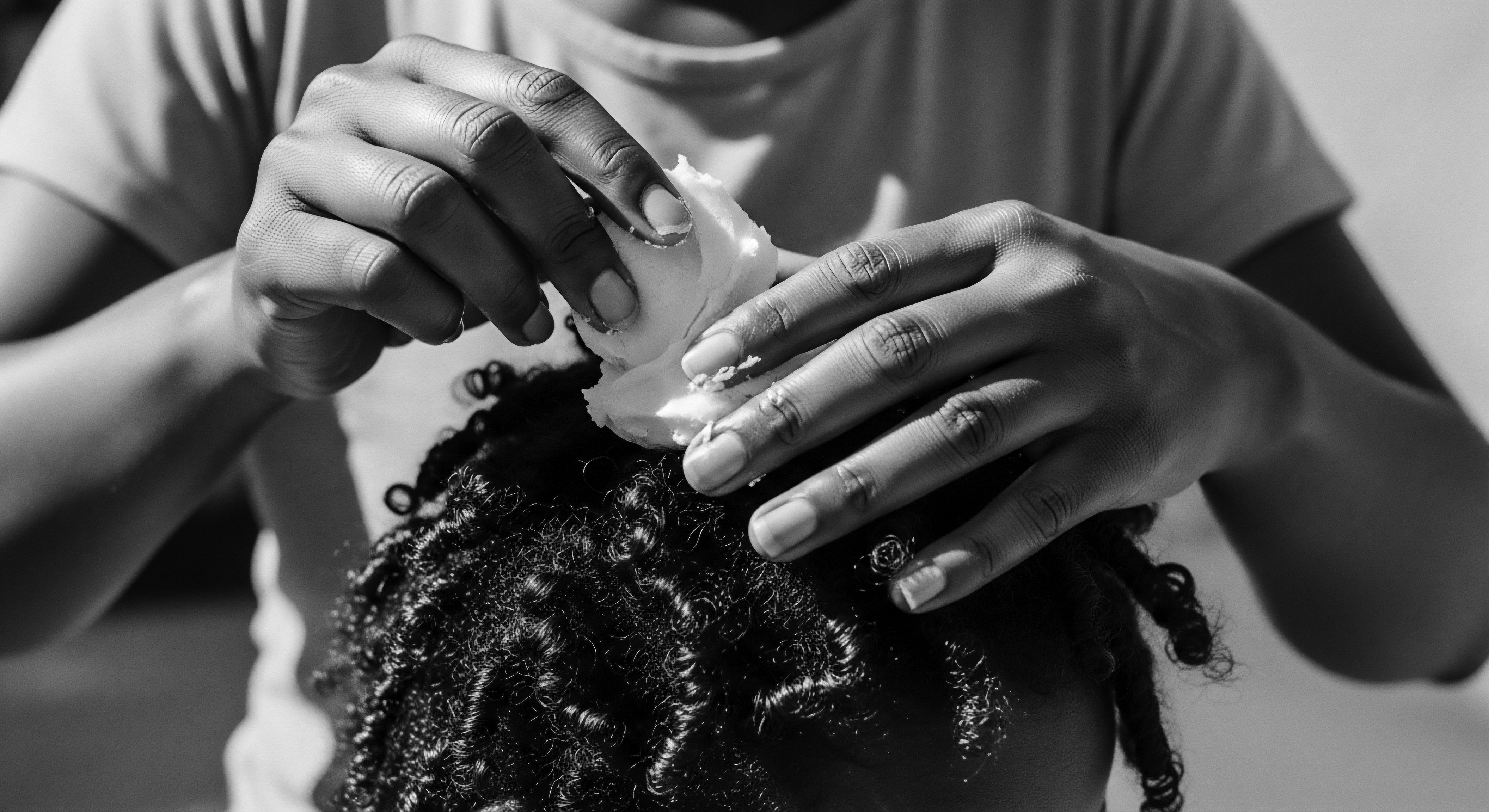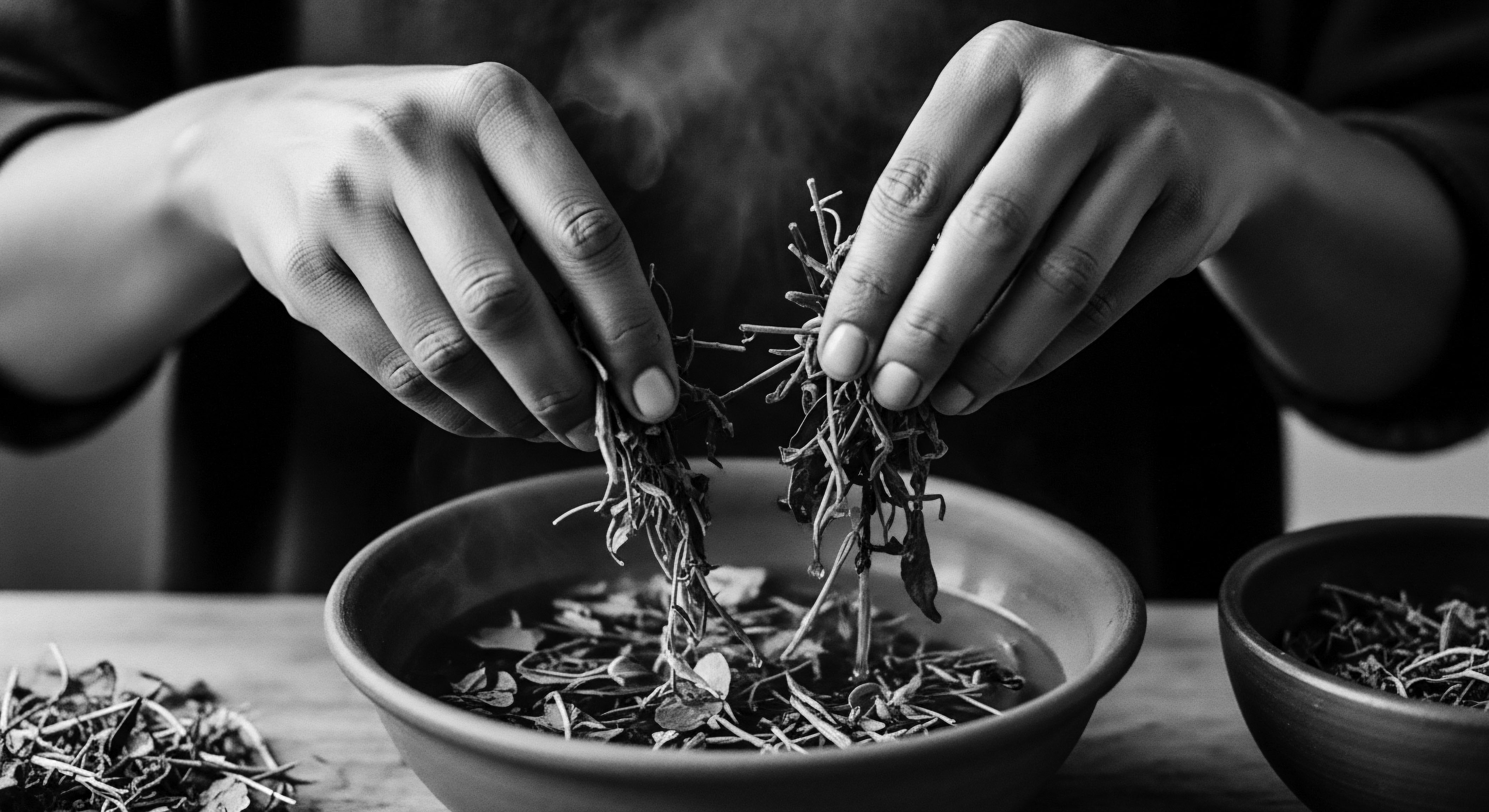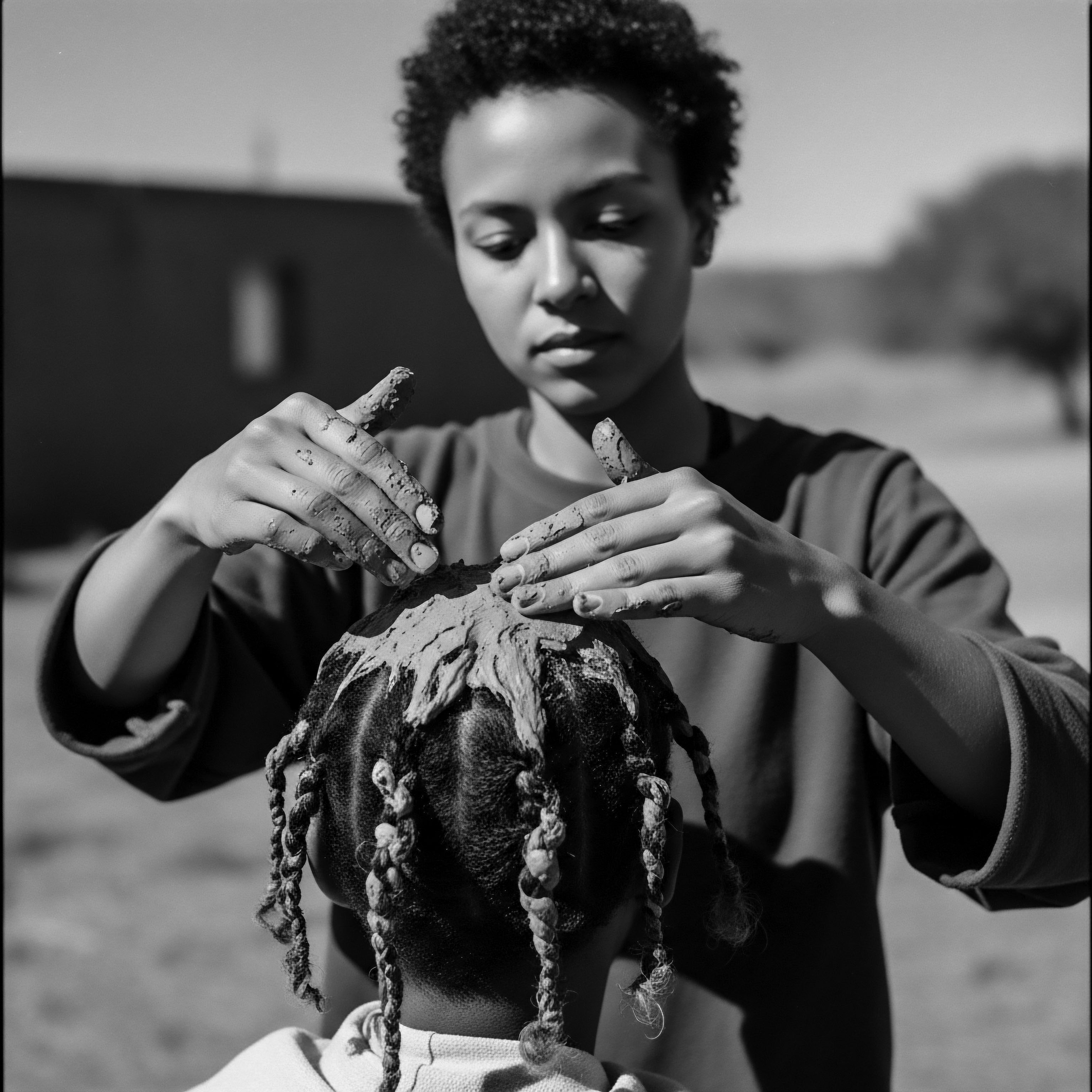
Roots
Consider for a moment the very strands that grace your crown. They are not simply fibers, but living archives, holding echoes of sun-drenched savannas, whispers from ancient markets, and the resilient spirit of generations. Each curl, coil, and wave carries a lineage, a profound story woven through time.
How, then, does African Black Soap, a humble preparation born of earth and fire, speak to this deep heritage of textured hair in our modern world? It begins at the source, in the fundamental understanding of what textured hair is, both in its intricate biology and in the ancestral wisdom that has always honored its unique structure.
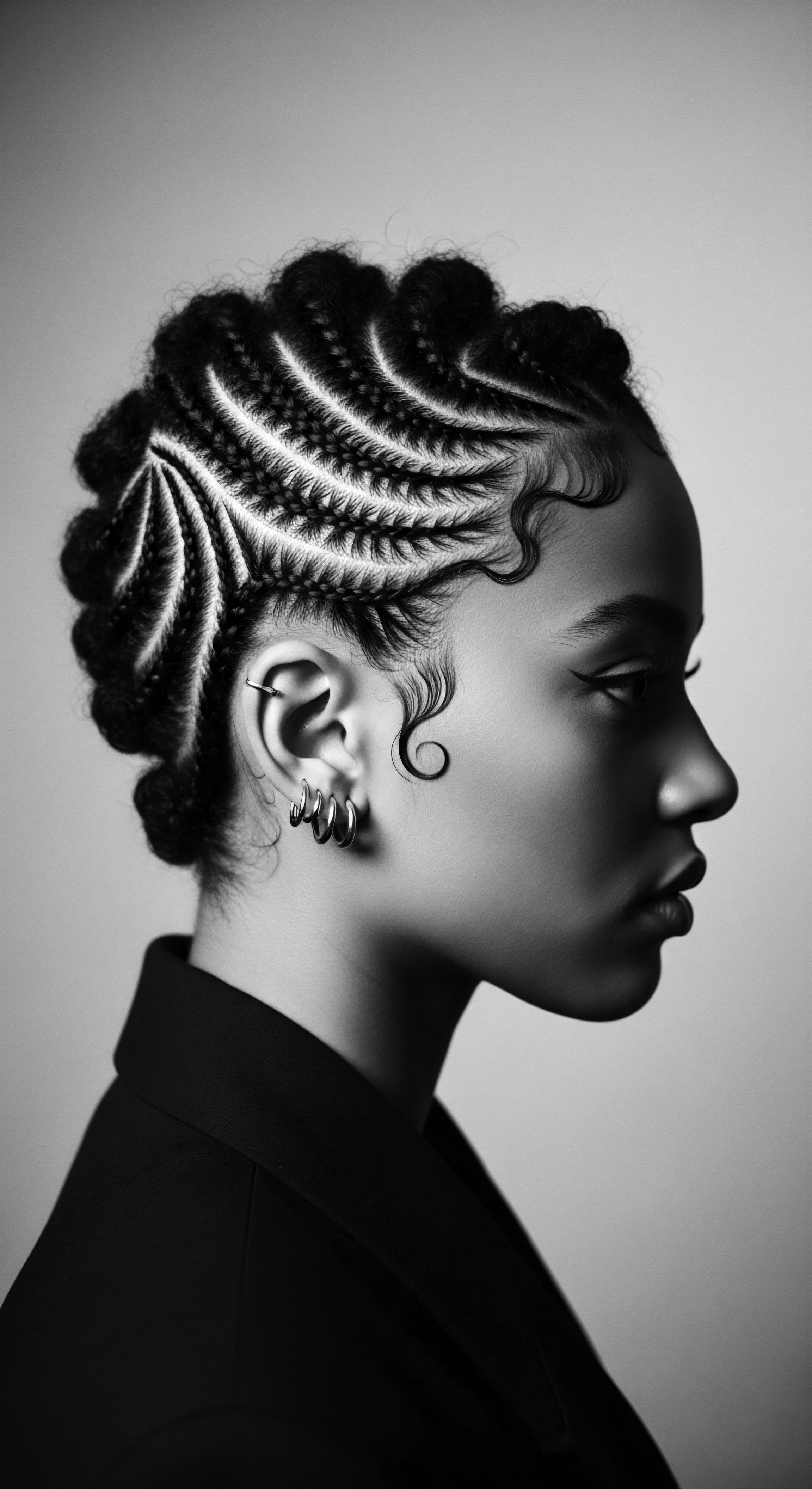
What Is the Elemental Composition of African Black Soap?
African Black Soap, often referred to as Ose Dudu in Yoruba or Alata Simena in Ghana, stands as a testament to ancestral ingenuity. Its creation involves a patient alchemy of plant matter, harvested from the fertile lands of West Africa. The process typically begins with the careful drying and burning of agricultural remnants: plantain skins, cocoa pods, shea tree bark, and palm tree leaves. This burning produces a potent ash, which then becomes the alkali, or lye, of the soap.
This ash, rich in potassium, is then combined with indigenous oils such as shea butter, coconut oil, and palm kernel oil. The precise blend and method can vary significantly from one community to another, each holding its own generational secrets, yet the core principles remain the same. The result is a soft, dark soap, deeply nourishing, possessing a distinctive earthy aroma.
African Black Soap’s creation is an ancestral alchemy, transforming plant matter and natural oils into a potent cleanser honoring textured hair’s deep lineage.
This traditional formulation brings a wealth of natural compounds to textured hair. The ashes contribute minerals like potassium and magnesium, while the oils deliver essential fatty acids and vitamins. For instance, plantain skins contain vitamins A and E, which provide antioxidant support. Cocoa pods carry anti-inflammatory properties, offering a soothing touch.
Shea butter, widely celebrated, lends its moisturizing prowess, ensuring the soap cleanses without stripping the hair of its vital moisture. This gentle yet effective composition makes it particularly suited for the distinct needs of textured hair.
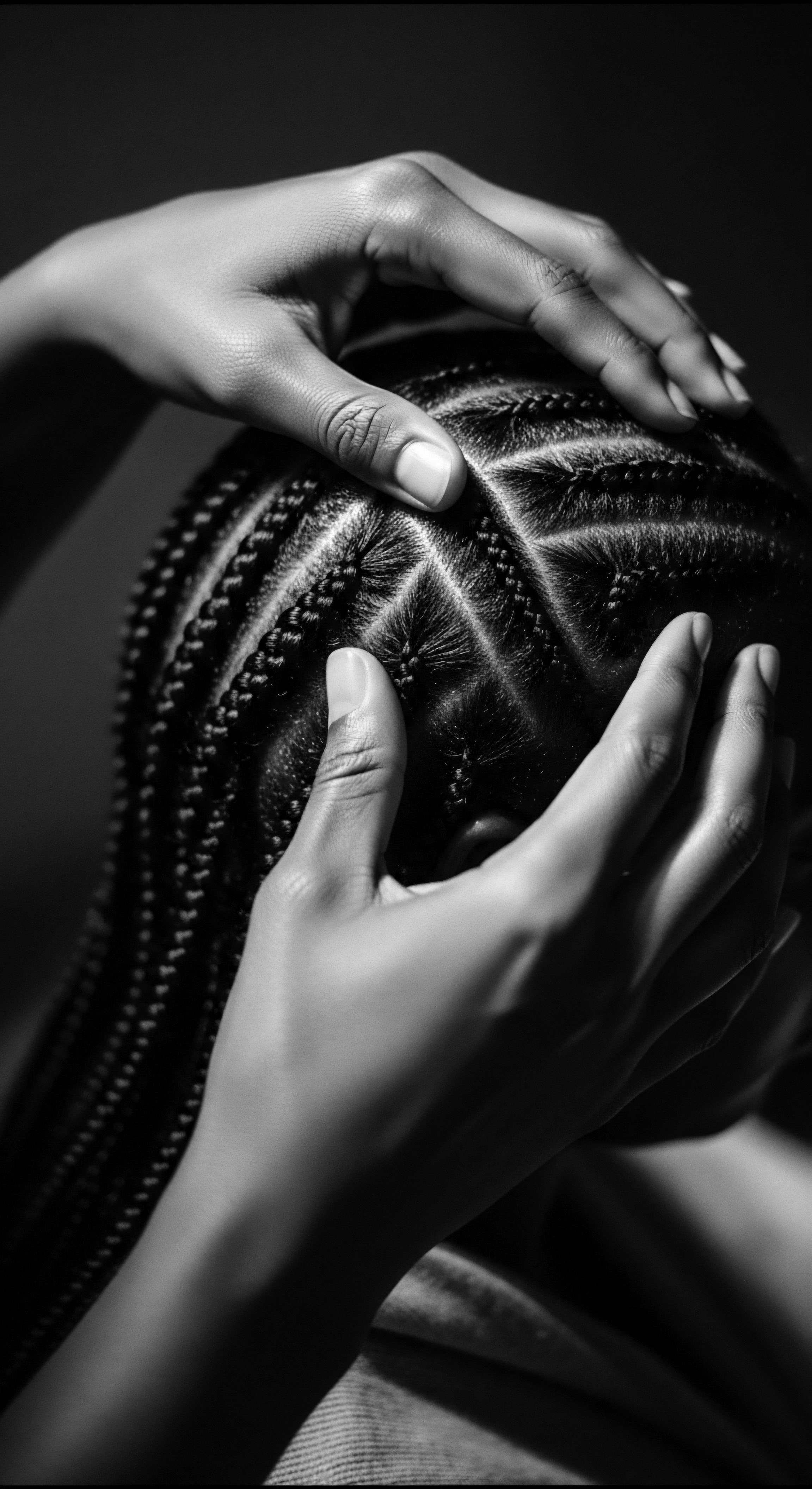
Ancestral Understanding of Hair Form
Long before scientific microscopes unveiled the elliptical cross-sections of textured hair strands, African communities possessed an intuitive, observational understanding of their hair’s varied forms. They recognized the diverse patterns of curls, coils, and waves, not as problems to be tamed, but as natural expressions of beauty and identity. This understanding was rooted in lived experience and passed down through generations. Hair was often categorized by its appearance, its behavior, its response to moisture, and its communal function.
These were not rigid classifications, but fluid descriptors that shaped care practices. The hair’s natural inclination to curl tightly meant it required gentler handling, more moisture, and protective styles to thrive.
The traditional lexicon surrounding textured hair was not clinical, but descriptive and communal. Terms often reflected the hair’s visual characteristics or its connection to nature. This rich vocabulary speaks to a profound cultural appreciation for hair as a marker of identity, status, and community affiliation.
- Ose Dudu ❉ A Yoruba term for African Black Soap, translating to “black soap,” signifying its color and a deep connection to its West African origins.
- Chebe Powder ❉ A Chadian blend of herbs, historically used by Basara women for length retention and moisture, demonstrating a regional specialized hair care heritage.
- Kusrayto ❉ The traditional name for Ziziphus spina-christi, a plant whose pounded leaf is mixed with water and used as a shampoo by the Afar people of Ethiopia.
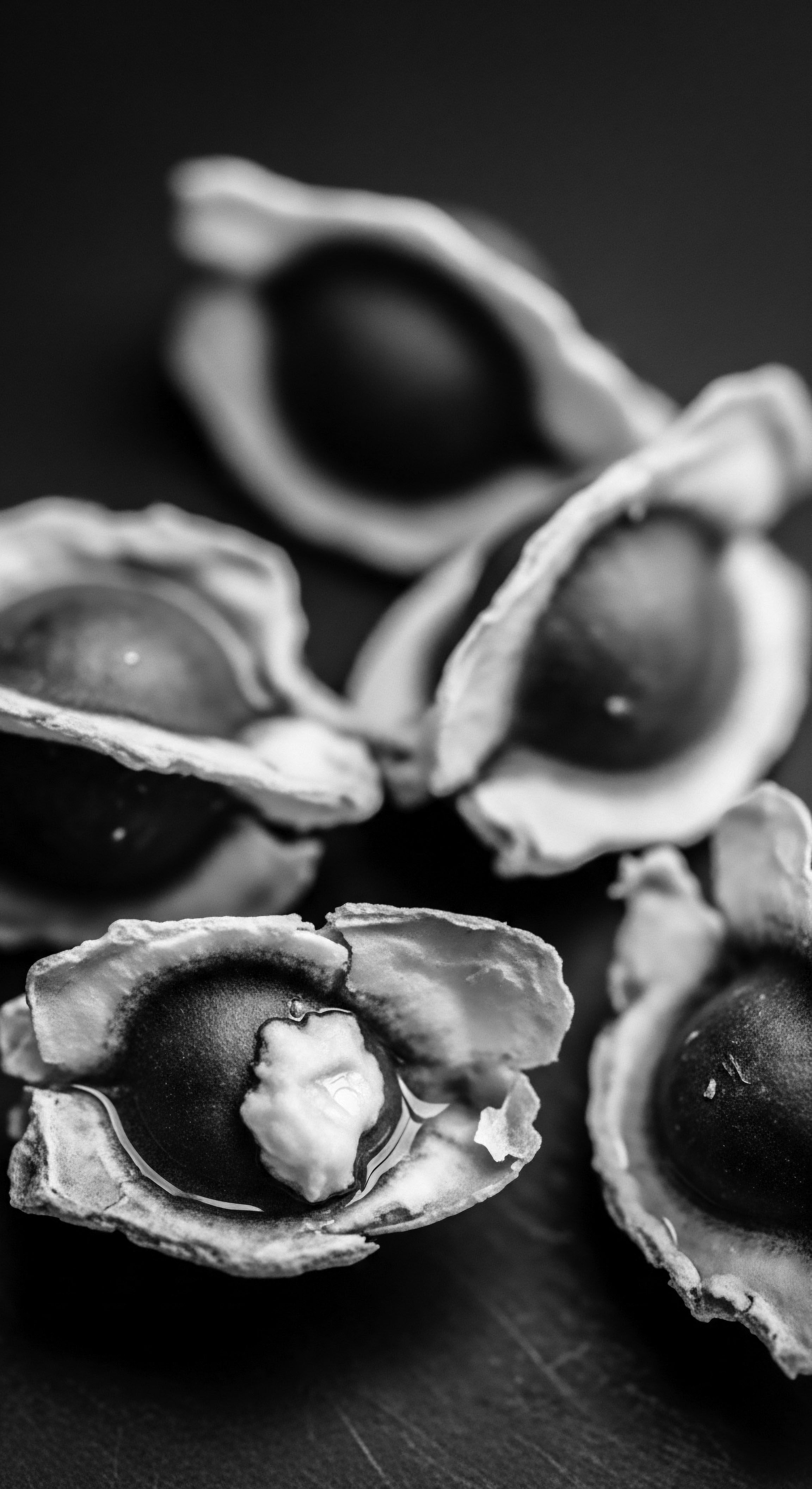
How Does African Black Soap Cleanse without Stripping?
Textured hair, by its very architecture, tends to be drier than straight hair. The twists and turns of each strand make it challenging for natural scalp oils, known as sebum, to travel down the hair shaft, leaving the ends particularly vulnerable to dryness. Traditional African Black Soap, unlike many harsh modern cleansers, approaches this delicate balance with a respectful hand.
Its gentle cleansing action stems from the saponified plant ashes and the abundant presence of unsaponified oils. These extra oils, which do not convert into soap during the making process, remain in the final product, providing a conditioning effect even as the hair is cleansed.
Modern science validates this ancestral wisdom. The natural pH of traditional African Black Soap typically ranges between 9 and 10, an alkaline environment. While the scalp prefers a slightly acidic pH of 4.5-5.5, this alkalinity, when followed by an acidic rinse (like diluted apple cider vinegar), can help effectively lift dirt and impurities from the hair cuticle, preparing it for moisture.
The mild yet effective cleansing power clears blocked pores in the scalp, ensuring a clean foundation for hair to flourish. This interplay of cleansing and conditioning is a core benefit, echoing the long-standing communal practices of maintaining hair health with locally sourced, naturally potent ingredients.
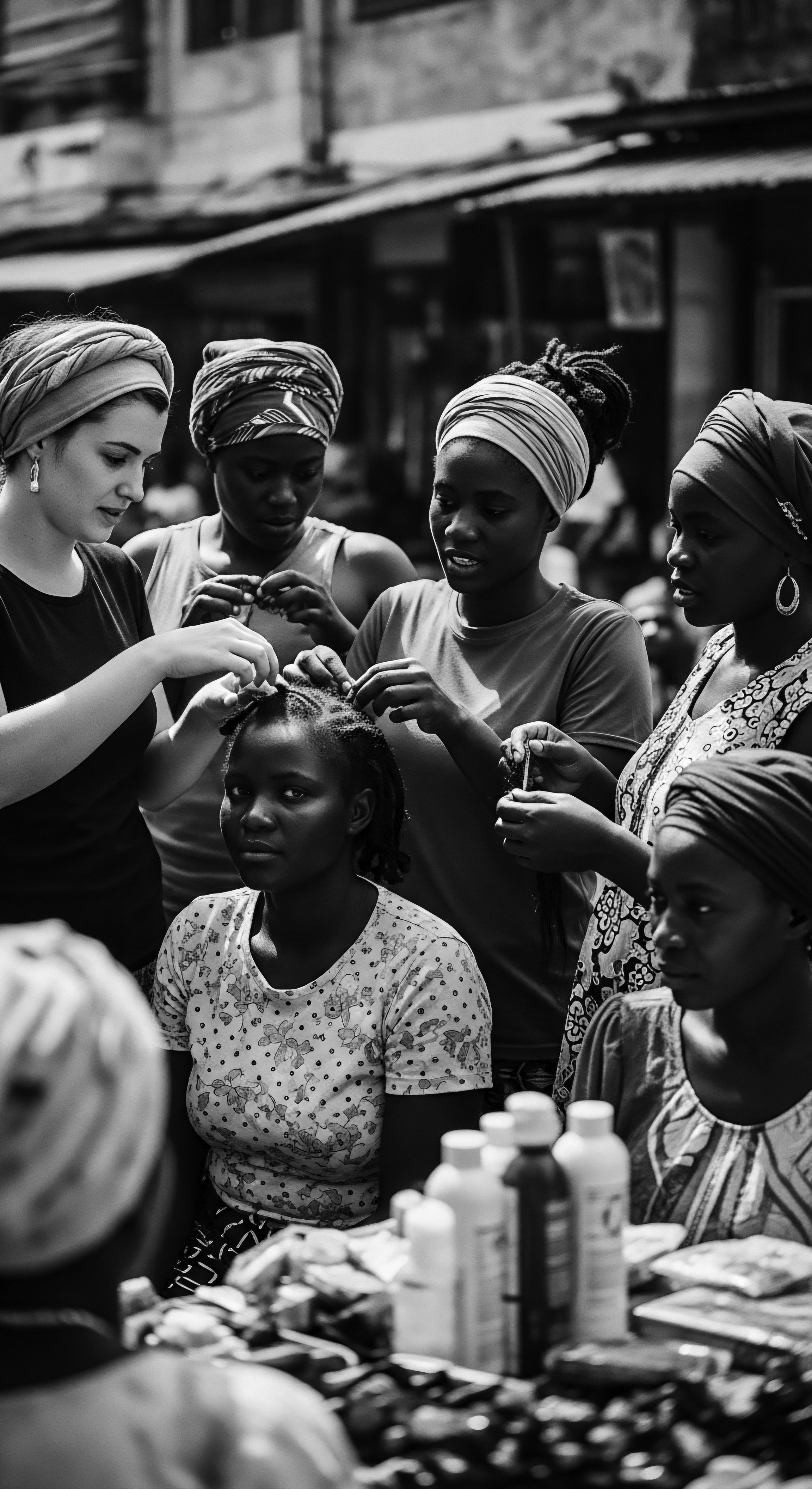
Ritual
Hair care in ancestral African communities was seldom a solitary or perfunctory act. It was a ritual, a communal gathering, a moment of deep connection ❉ a tender thread weaving individuals into the larger fabric of their heritage. The application of African Black Soap, for instance, transcended mere hygiene; it became a preparatory step for intricate styles, a moment of soothing care, and a direct link to the wisdom passed down through time. Modern textured hair care, in its own way, still carries these echoes, even as it adapts to contemporary rhythms.
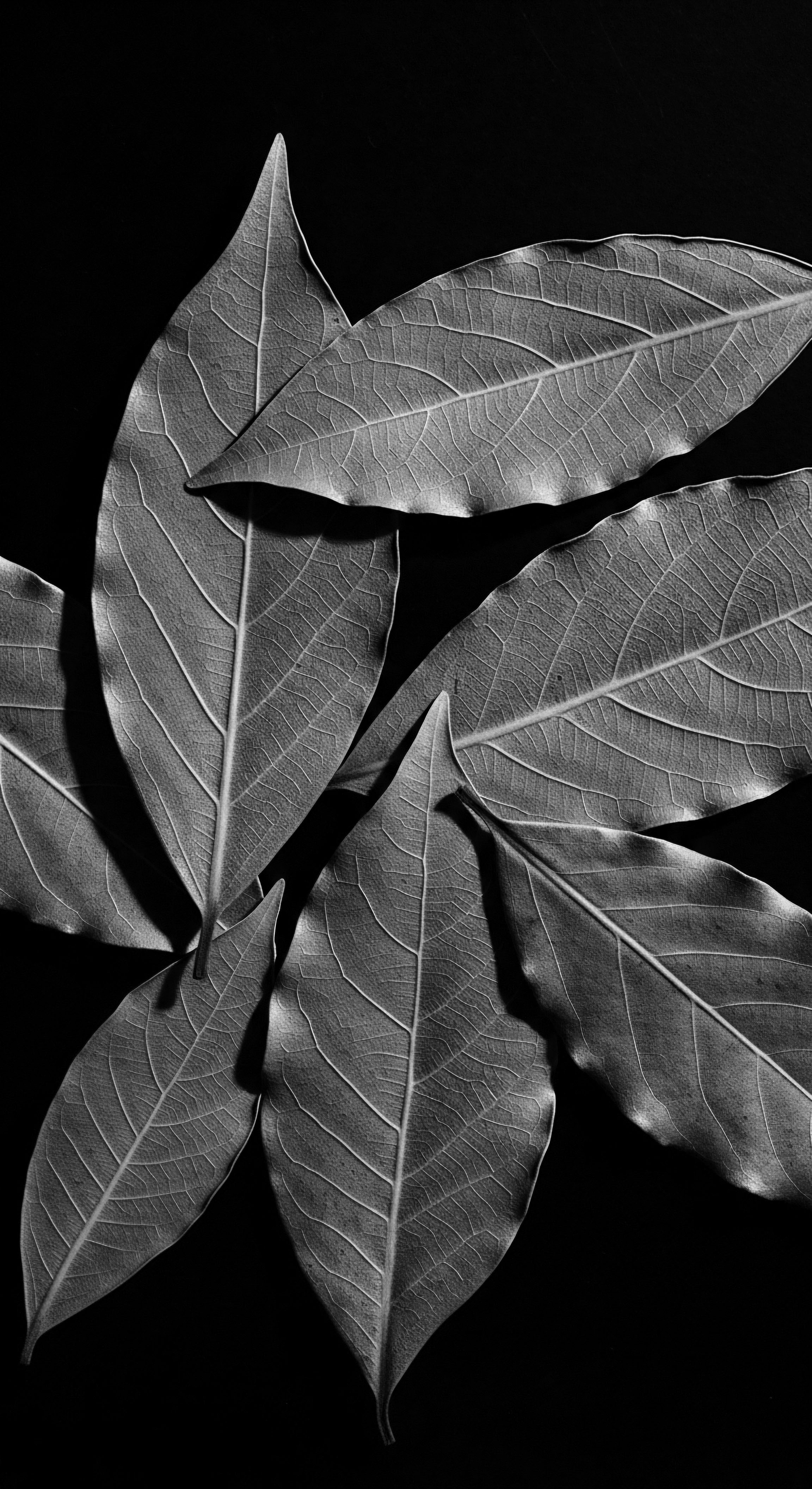
The Cleansing Preface to Protective Styling
Protective styles, such as braids, twists, and cornrows, hold a sacred place in the heritage of textured hair. They shield delicate strands from environmental stressors, promote length retention, and often serve as profound expressions of cultural identity. The longevity and health of these styles depend greatly on the state of the hair and scalp before installation.
African Black Soap, with its clarifying yet non-stripping properties, prepared the hair for these long-term commitments. It removed accumulated dirt, environmental impurities, and excess oils, ensuring a clean canvas for styling.
This historical application of a naturally purifying agent laid a foundation for styles that could last for weeks, if not months. The soap’s efficacy in combating scalp conditions like dandruff, due to its antimicrobial and antifungal properties, meant a healthier scalp beneath the protective style. A clean, balanced scalp is paramount for hair well-being, especially when hair is tucked away for extended periods. This traditional practice allowed styles to not only look visually striking but to truly protect the hair, upholding ancestral principles of practical care and beauty.
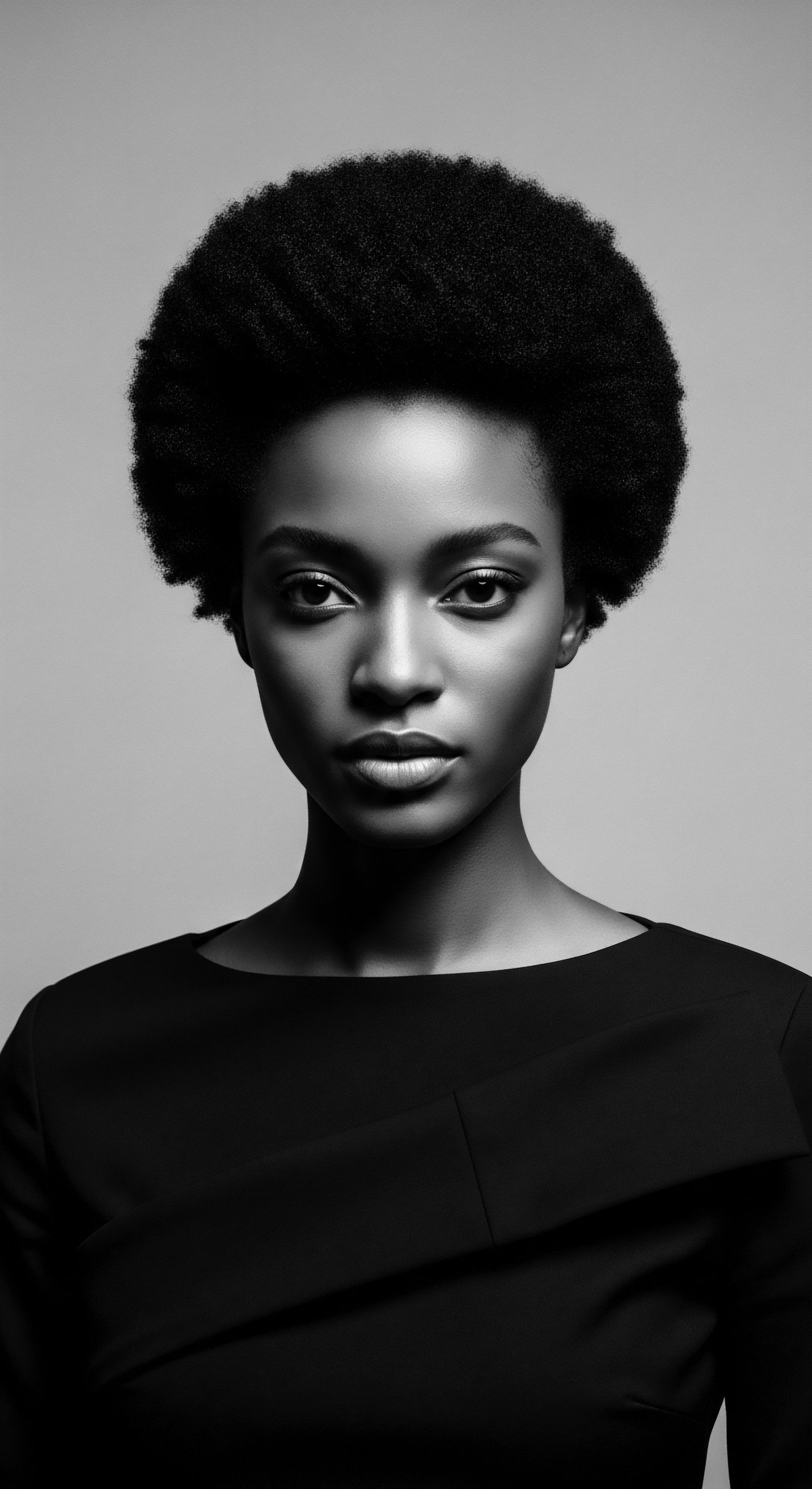
Tools and Textures in Ancestral Practices
The tools used in conjunction with African Black Soap were as elemental as the soap itself. Fingers, bone combs, and natural fibers were instruments of care and adornment. The application of the soap involved massaging the scalp, detangling strands with patient hands, and rinsing with natural water sources.
This hands-on, unhurried approach allowed for a deeper connection between the caregiver and the hair. The gentleness inherent in these practices was crucial for textured hair, which is prone to breakage if handled roughly.
This tender handling, combined with the mild nature of the soap, helped to preserve the hair’s integrity. It was a stark contrast to harsh scrubbing or the use of aggressive implements. The texture of African Black Soap itself, often less smooth than industrial soaps due to its ash content, provided a natural, subtle exfoliating action for the scalp. This gentle exfoliation helped to remove dead skin cells and promote circulation, contributing to a healthier scalp environment ❉ a foundational step in encouraging healthy hair growth that has long been understood in ancestral contexts.
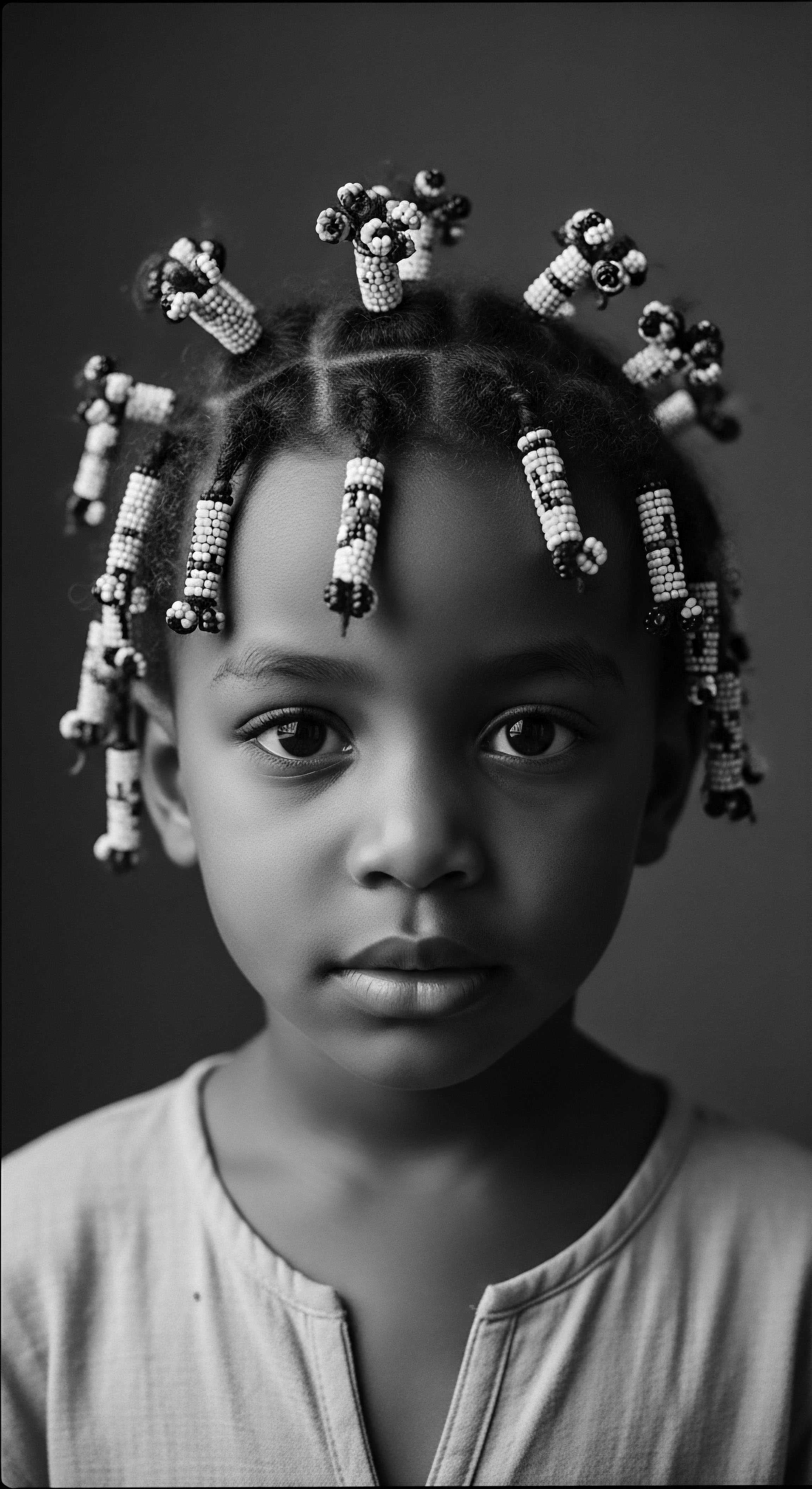
From Elemental Cleansing to Modern Definition
While ancestral practices focused on general hair health, cleansing, and preparation for protective styles, modern textured hair care places a greater emphasis on curl definition and moisture retention. Does African Black Soap, with its alkaline pH, align with these contemporary desires? The science suggests that while its cleansing properties are undeniable, careful use is paramount.
Its ability to thoroughly cleanse the scalp and hair, lifting product buildup and excess oil, creates a clean slate. This removal of impediment is a prerequisite for curls to clump and define properly.
However, the alkaline nature means a follow-up with an acidic rinse, such as diluted apple cider vinegar, becomes a necessary modern ritual to restore the hair’s natural pH balance. This step helps to close the hair cuticles, reduce frizz, and enhance shine, thereby supporting greater curl definition. The integration of African Black Soap into a modern routine thus respects its heritage as a powerful cleanser while adapting its usage to meet contemporary aesthetic and health goals for textured hair. This thoughtful incorporation ensures the enduring benefits of this traditional soap continue to serve today’s diverse hair needs.
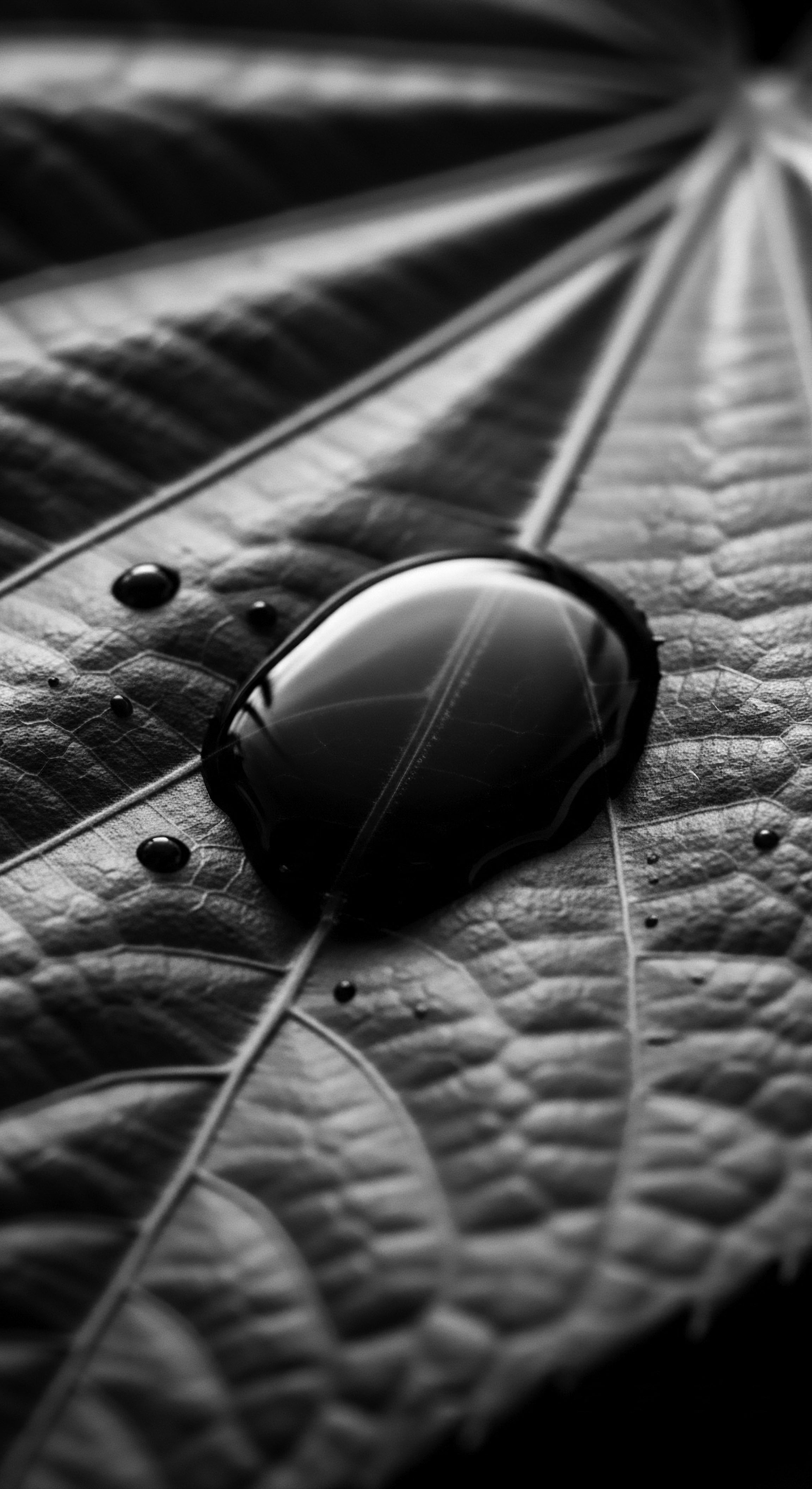
Relay
The journey of African Black Soap from ancient West African hearths to the modern shelves of textured hair care represents a profound relay of ancestral wisdom. It is a story of enduring knowledge, of natural efficacy, and of a deep-seated connection between holistic well-being and the vitality of our strands. This ancient cleanser, in its contemporary application, continues to speak volumes about the interplay of science, culture, and personal identity within the textured hair community.
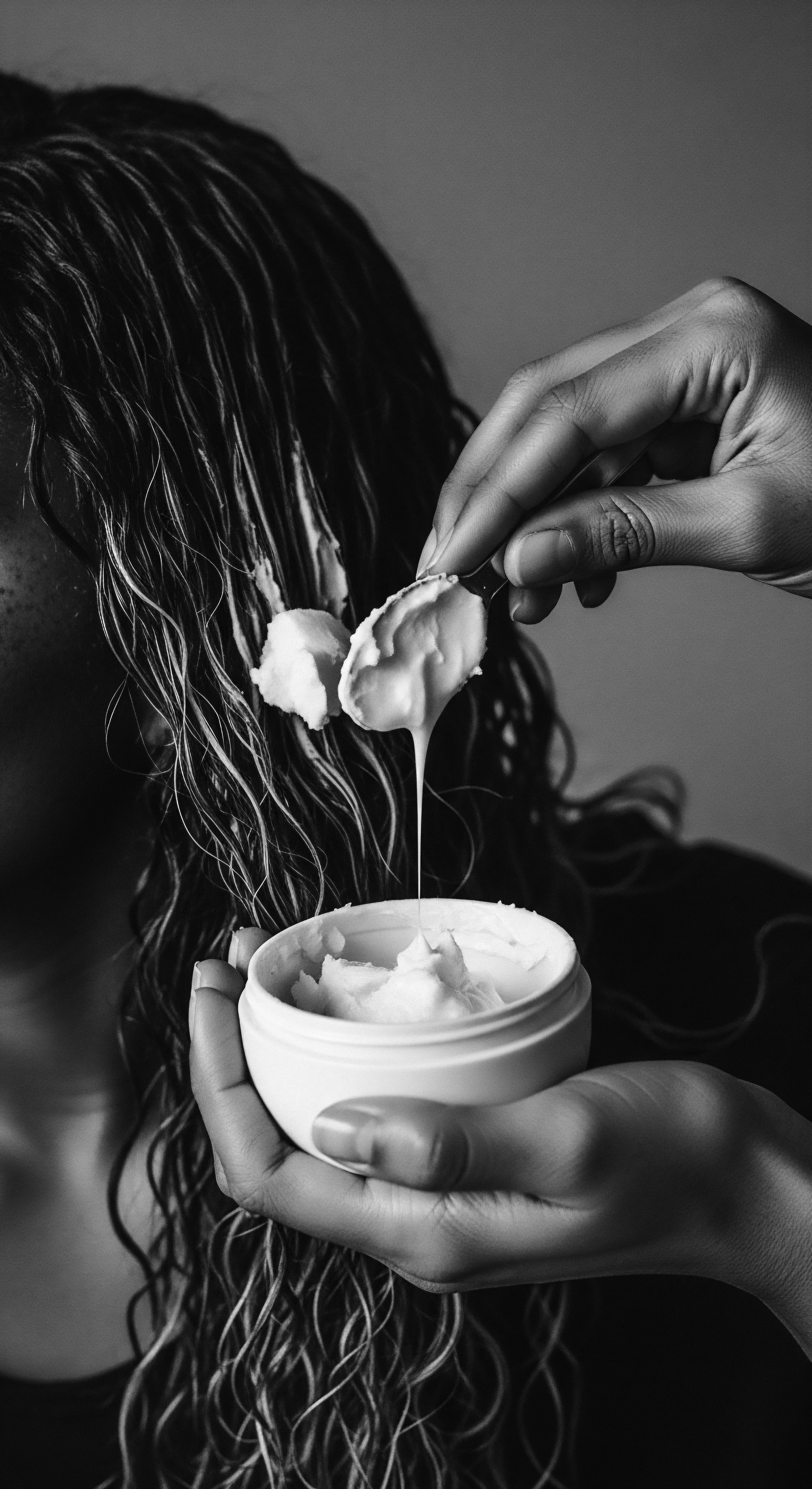
What Traditional Wisdom Guides a Holistic Hair Care Regimen Today?
The traditional African approach to hair care was always holistic, viewing hair health as intertwined with overall body and spirit. This contrasts with a segmented, problem-solution approach often found in commercial hair care. Ancestral practices understood that healthy hair originated from a nourished scalp and a well-nourished body. This perspective finds resonance in the composition of African Black Soap itself, which provides a wealth of minerals and vitamins not just for cleansing but for scalp nourishment.
Consider the broader context: ethnobotanical studies in Africa document a wide array of plants used for hair health. A comprehensive review identified 68 African plants traditionally used for hair treatment, addressing concerns such as alopecia, dandruff, and tinea. Remarkably, this review also points to a broader trend: a global analysis revealed that 44% of traditional plants used for androgenetic alopecia also have ethnobotanical records for diabetes treatment (Ezekwem et al. 2024).
This statistic, while global, stems from a review of African flora, powerfully illuminates the ancestral understanding of systemic health influencing hair vitality. It underscores that scalp and hair conditions were often perceived not in isolation, but as reflections of internal balance or imbalance, pointing to a ‘topical nutrition’ philosophy. This long-held wisdom suggests that maintaining hair health requires attentiveness to what we apply to our scalp and what we consume, a deep-seated tenet of ancestral wellness.
This intergenerational knowledge encourages us to consider the ingredient list in our modern products with an eye toward natural, restorative elements, mirroring the purity of traditional African Black Soap. Building a personal regimen rooted in this heritage means prioritizing gentle cleansing, thorough moisturizing, and scalp health, much as ancestral caregivers did.
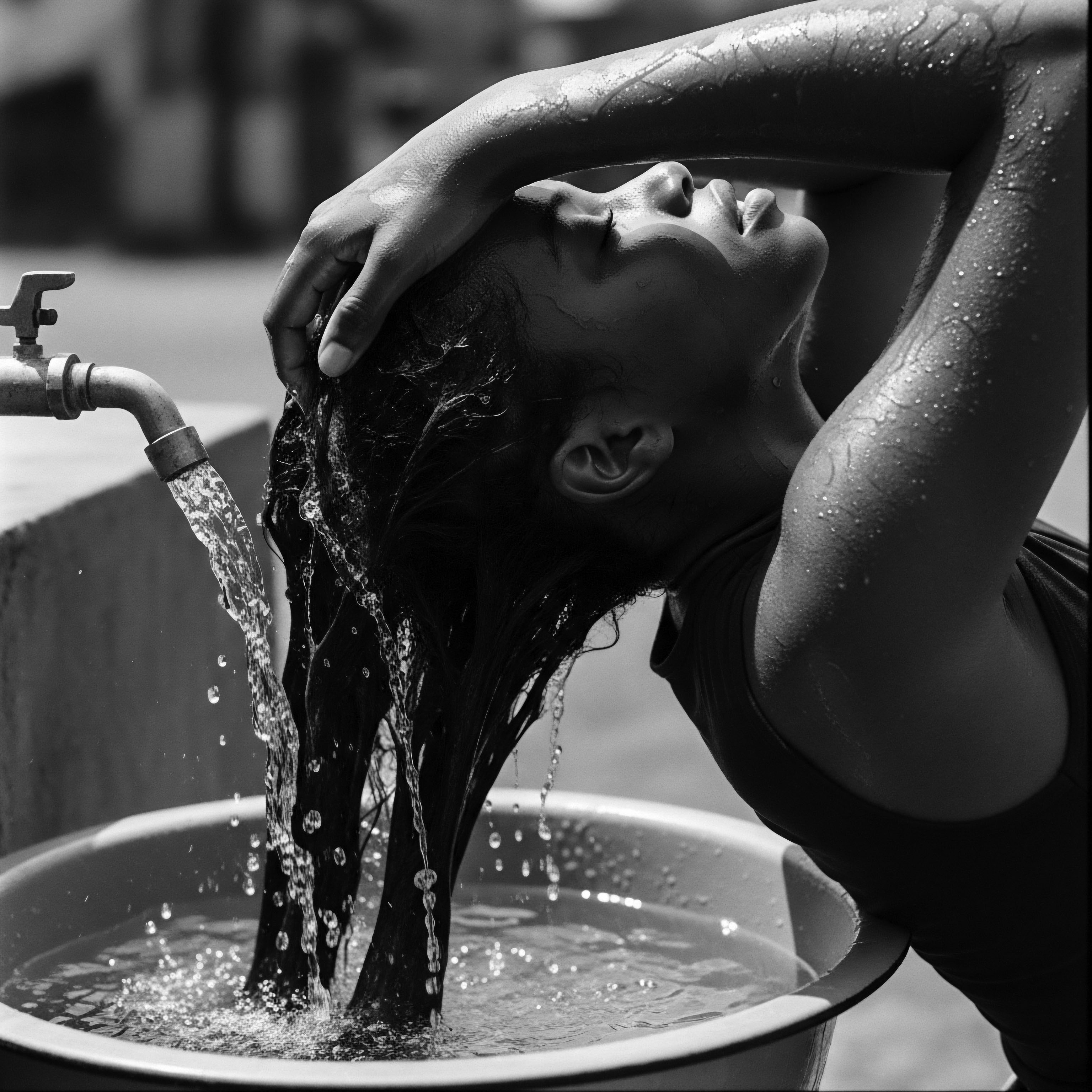
Nighttime Sanctum and Hair Protection
The sun sets, and with it, the need for daytime adornment shifts to nightly preservation. For textured hair, nighttime care is not a luxury, but a necessity, a tradition deeply seated in practices designed to protect delicate strands from friction and moisture loss. While direct historical accounts detailing African Black Soap’s specific use in nighttime rituals are scarce, its role as a cleansing precursor is clear. A thorough cleanse with the soap would prepare the hair for its nightly rest, ensuring a clean scalp before applying protective oils or wrapping the hair in fabrics.
The use of hair coverings, such as bonnets, wraps, or head ties, has a long lineage in African cultures, serving functions beyond mere aesthetics ❉ they protected styles, maintained moisture, and signified status. Just as these coverings created a protective sanctuary for hair during sleep, African Black Soap set the stage by ensuring the hair and scalp were clean and receptive to subsequent conditioning treatments. This interplay reflects a consistent heritage of care, where each step, from cleansing to protection, works in concert to preserve the hair’s inherent beauty and strength.
Scalp Health ❉ The cleansing action of African Black Soap addresses issues like excess sebum and product buildup, which can obstruct follicles and hinder growth. A healthy, unclogged scalp is essential, particularly for those with tightly coiled hair where debris can easily accumulate at the root.
Moisture Retention ❉ While African Black Soap cleanses, its traditional formulations contain unsaponified oils that help mitigate stripping. This prepares the hair to absorb subsequent moisturizing treatments, such as butters and oils, which were (and still are) crucial for preventing dryness and breakage in textured hair.
Antimicrobial Properties ❉ African Black Soap has demonstrated antimicrobial efficacy against certain bacteria and fungi, which can contribute to scalp issues like dandruff or itchiness. A clean, balanced scalp environment supports overall hair health and comfortable sleep.
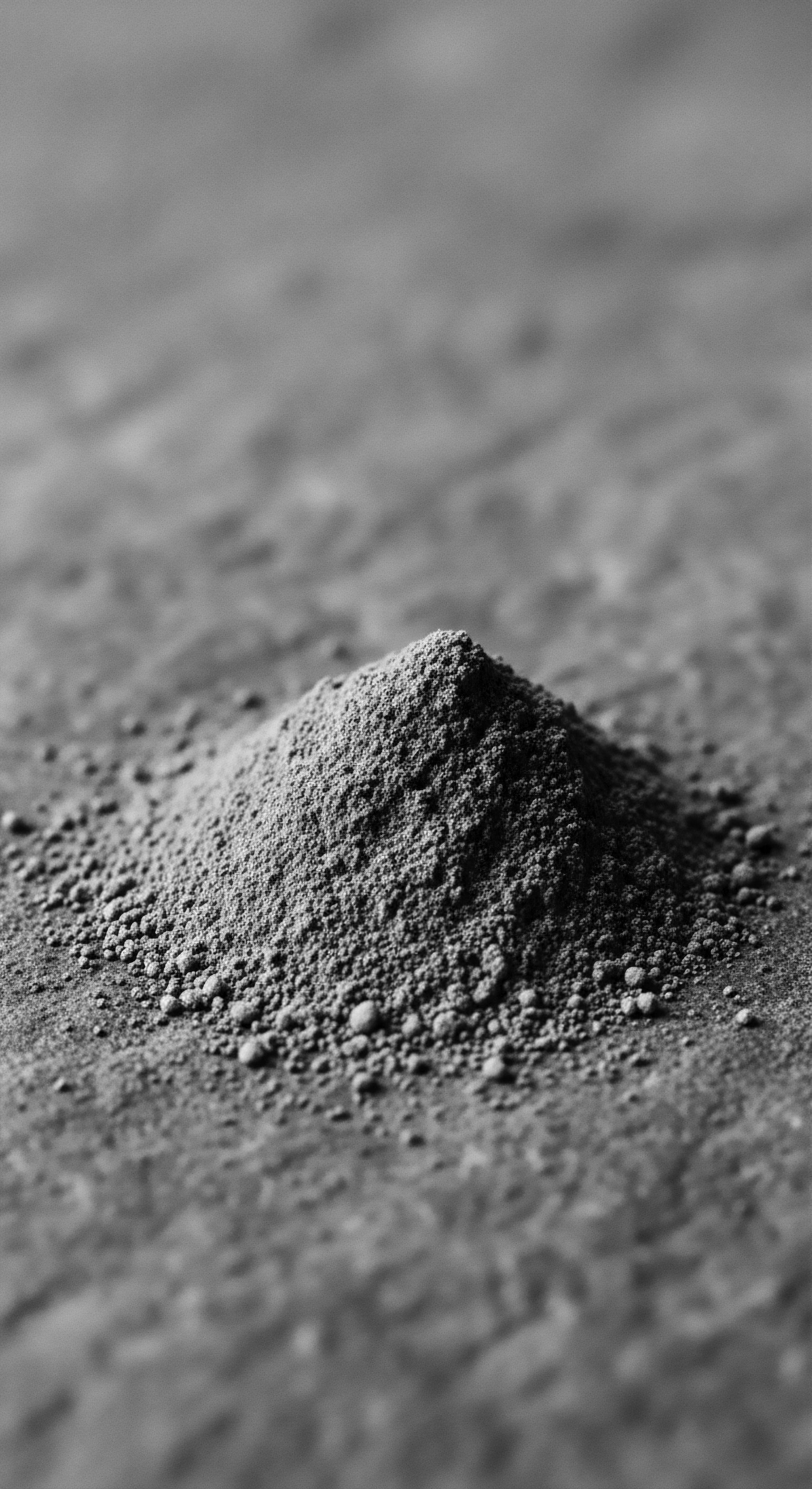
Solving Textured Hair Challenges with Ancestral Wisdom
Textured hair presents its own set of challenges: dryness, breakage, tangles, and scalp sensitivities are common concerns. African Black Soap, through its very nature, offers solutions rooted in time-tested efficacy. Its unique properties address these issues in ways that resonate with traditional approaches to natural wellness.
The enduring power of African Black Soap in modern hair care lies in its dual capacity to cleanse with a gentle authority and impart nourishment, mirroring ancestral wisdom.
For dryness, the soap’s inherent glycerin and unsaponified oils provide a hydrating touch, softening strands. For breakage, a clean scalp encourages healthy growth, and hair that is properly cleansed without harsh stripping is less prone to damage during detangling. The exfoliating nature, derived from its ash content, aids in clearing the scalp of flakes and buildup, offering relief for common scalp conditions such as dandruff and psoriasis. Its demonstrated antimicrobial properties work against common scalp bacteria and fungi, providing a natural answer to persistent irritation.
The efficacy of African Black Soap can be understood as a testament to the cumulative knowledge of generations. It represents a living compendium of solutions, proving that effective hair care does not always require synthetic compounds or complex chemical formulations. Instead, it often requires a return to elemental ingredients and practices that have served communities for centuries, honoring the deep historical connection between the earth’s bounty and vibrant hair.
Traditional African communities also used various plant-based oils and butters for hair care. These included shea butter, palm oil, and coconut oil, all of which often feature in African Black Soap formulations. These ingredients supplied fatty acids and vitamins, which supported scalp health and hair strength.
This emphasis on natural, nourishing elements speaks to a consistent philosophy: providing the hair with what it recognizes and thrives upon, rather than attempting to force it into unnatural states. This is the enduring legacy of African Black Soap, a legacy that continues to inform and enrich modern textured hair care.
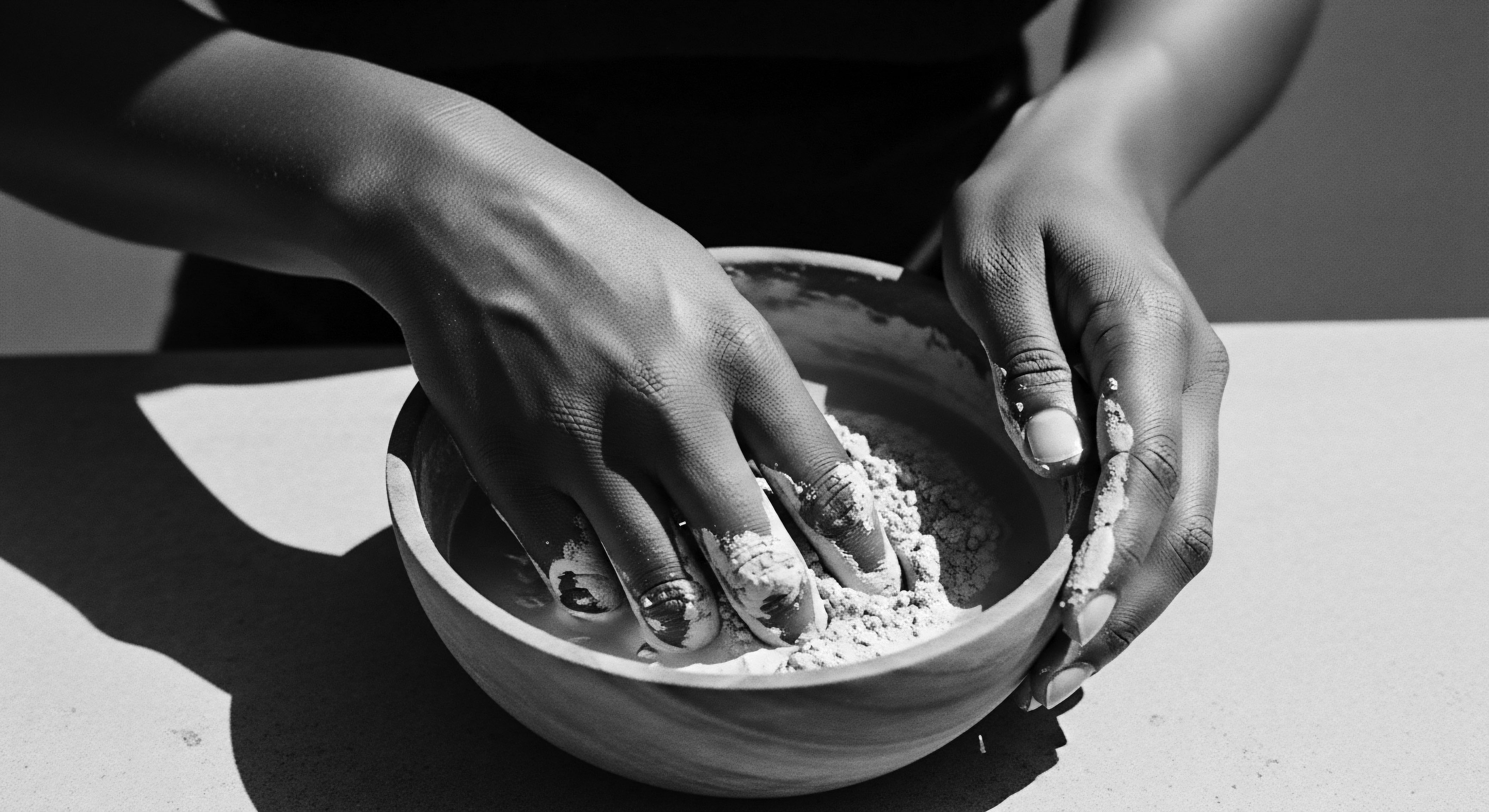
Reflection
The narrative of African Black Soap and its connection to textured hair heritage unfolds as a vibrant, living archive. It whispers tales of resilience, ingenuity, and a profound respect for the natural world. Our exploration of this ancestral cleanser, from its elemental beginnings to its role in contemporary care, reveals something far grander than a mere product. It unveils a testament to the enduring ‘Soul of a Strand’ ❉ a recognition that textured hair is not simply a biological marvel, but a cultural anchor, a beacon of identity, and a repository of inherited wisdom.
African Black Soap stands as a timeless symbol of cultural resilience and ancestral wisdom, offering a profound link to the living legacy of textured hair.
This humble soap, forged from the earth’s gifts and human hands, serves as a tangible link to a collective past, reminding us that the answers to our modern hair care dilemmas often reside in the practices of those who came before us. It challenges us to look beyond fleeting trends and toward the deep, sustainable knowledge systems that have nourished hair for centuries. African Black Soap prompts a dialogue between ancient practices and present-day needs, inviting us to approach our hair not as a challenge to be overcome, but as a cherished inheritance to be honored and nurtured. It is, in its essence, a continuous story of renewal, where the echoes of tradition guide us towards a future of empowered and authentic textured hair care.
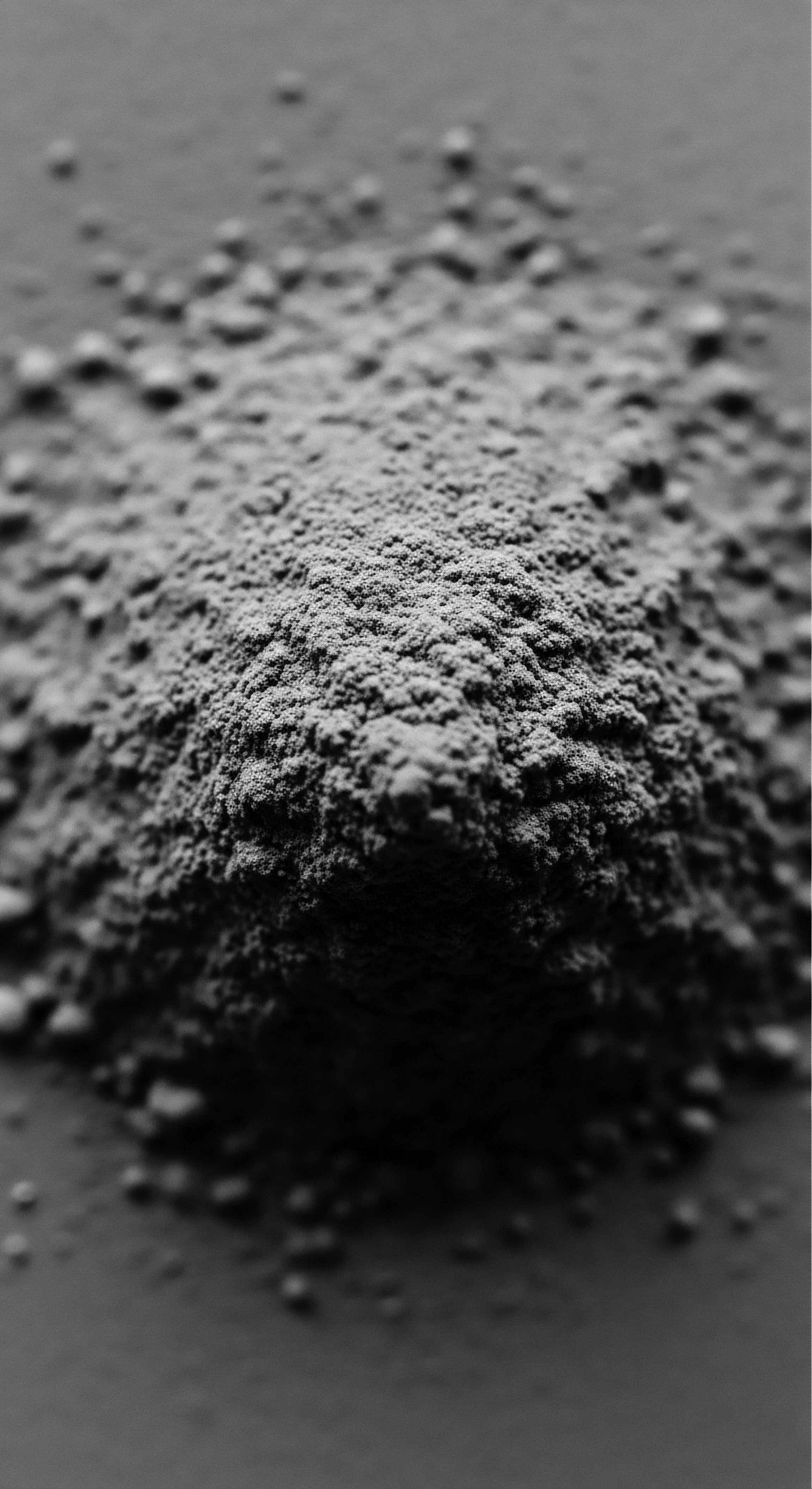
References
- Cosmetopoeia of African Plants in Hair Treatment and Care: Topical Nutrition and the Antidiabetic Connection? Ezekwem, Nwachukwu-Eze, Ogbuehi, Ogwu, Nwonuala, Onyeukwu, Nnaemeka, Umeokoli, Ogbunike, Otuokere, & Adan, 2024
- African Black Soap; Physiochemical, phytochemical properties and uses. Adisa, I. A. & Anetor, J. I. 2024
- Ethnobotanical study of plants used for medicinal, cosmetic, and food purposes in the region of Moulay Yacoub. El Khomsi, Dandani, Chaachouay, & Hmouni, 2021
- Plants used for hair and skin health care by local communities of Afar, Northeastern Ethiopia. Alemu, Mengistu, Negash, & Tesfaye, 2025
- PRODUCTION OF BLACK SOAP USING PLANTAIN PEELS AS SOURCE OF ALKALI. Adaji, B. P. & Ogbodo, G. U. 2020
- Evidence-Based Potential of some Edible, Medicinal and Aromatic Plants as Safe Cosmetics and Cosmeceuticals. Adegoke, A. A. & Alabi, A. O. 2021
- Dweck, A. African plants: Skin- and hair-care materials from bark, leaves, oils and roots. C&T, 1997
- The history of black hair. BLAM UK CIC, 2025
- Cosmetopoeia of African Plants in Hair Treatment and Care: Topical Nutrition and the Antidiabetic Connection? Ezekwem, Nwachukwu-Eze, Ogbuehi, Ogwu, Nwonuala, Onyeukwu, Nnaemeka, Umeokoli, Ogbunike, Otuokere, & Adan, 2024

